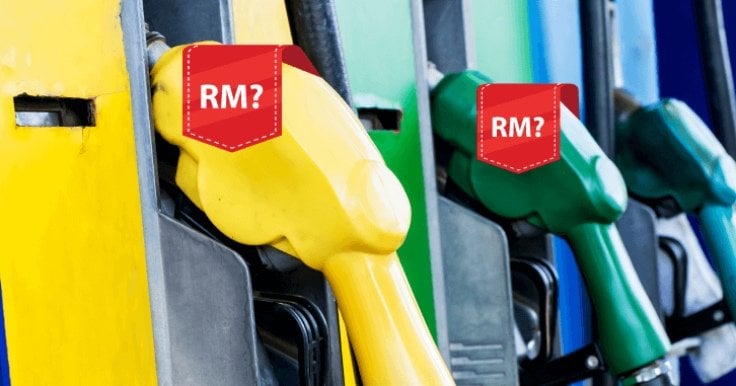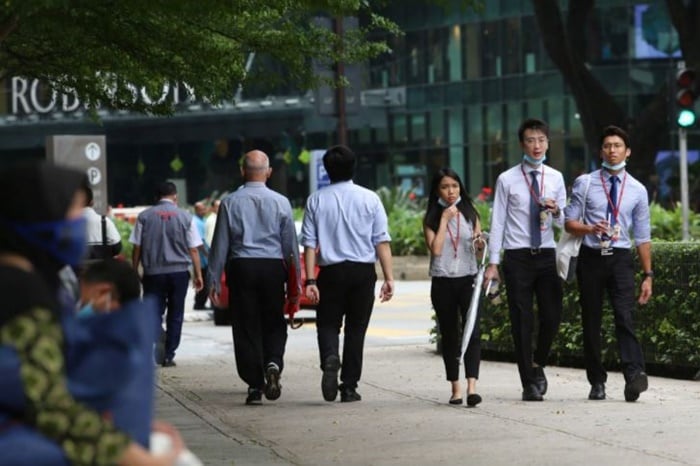Ahmad Mudhakkir
24th November 2017 - 6 min read
Budget 2018 certainly brought us a lot of interesting news, developments, and freebies, didn’t it? During our coverage of the budget speech, we’ve noticed that one of the most asked questions was “will the BR1M amount increase next year?”
Spoiler alert: it didn’t.
But what if it did? Suppose you don’t just get BR1M once, twice, or three times per year. Suppose you get it every month after you turn 18. And suppose the amount is enough to cover food and rent for the month, and there is no minimal requirement except for being a Malaysian citizen. That’s exactly the idea behind a universal basic income, and it might be the way forward for developed countries around the world.

How Would Universal Basic Income Work?
The idea behind this is a little different than what BR1M seeks out to do. While BR1M is meant to ease the burden of citizens who are earning less than most other Malaysians, a universal basic income’s purpose is to eliminate that burden altogether.
A universal basic income would cover all citizens’ basic living costs including rent, food, and clothes. They will be given a set amount of money that they can do with however they wish and they don’t need to meet any special criteria. They will then be free from having to work just to earn a living, and focus on doing the kind of job they’ve always wanted to do.
Where Would This Money Come From?
It would come from the same source as all other state-provided amenities like our roads, schools, hospitals, and emergency services: taxes. We already have allocations for social welfare, so the universal basic income (UBI) will just be an extension of this.
This Doesn’t Sound Like a Good Idea…
You’re not alone in thinking this. As good as it would be to just get free money simply by being born, there are (unsurprisingly) a few potential pitfalls to this idea:
It might make people lazy. While the point of a UBI is to stop people from always having to struggle to survive, some people might exploit this basic income by choosing not to struggle at all. They can just live off of the handouts and never take up a job at all. With fewer people taking up jobs, there would be fewer people to tax, which would in turn mean less funds to keep the UBI going.
It’s expensive. A living wage is different for different regions but what remains true is that this will definitely necessitate a huge increase in taxes to pay for this basic income. Proponents of the idea claim that the income will be fed back into the economy by the citizens’ spending, but that might not be enough to offset the costs. Also, prices of certain low-end goods might increase since there would be more demand for them once everybody can afford the basic necessities.
The value of a job might go down. When was the last time getting free stuff motivated you to do something? It can be argued that part of the reason people are motivated to work hard and achieve success, innovation, and productivity is the fear of poverty. With that taken away, citizens might not be as productive and as well-incentivised to work hard, if they do work at all.
These criticisms carry with them some merit, and it’s primarily these reasons that stop developed countries from fully implementing UBI as a replacement for their social welfare system. However, several different countries and regions (Switzerland, Namibia, Alaska) are currently trying this out in different stages of experimentation to see and record the real-world affects of applying a UBI.
Why do they do this despite all the potential pitfalls mentioned above? Because there are very real positive benefits that this can bring to a country besides social benefit.

Okay… Besides Free Money, What Are the Benefits of a Universal Basic Income?
Simplifies welfare management. With how it works now, government workers are required to ensure that welfare recipients aren’t claiming their benefits fraudulently, and to administer the complicated system of tax credits which can be thick with red tape and bureaucracy. A blanket basic income eliminates this administrative cost by giving the cash directly to the beneficiaries and letting them spend it on their own discretion.
Drastically reduces exploitation of labour. With a guaranteed income, workers can now say no to jobs that are too dangerous, have abusive practices, or barely legal. Workers have more say and more power over how they’re treated and the kind of work environment that best suits their health and well-being. This in turn would encourage employers to provide better care of their employees and reduce exploitative labour practices at the same time.
Hedging against job losses due to automation. With the development of new automation technology and the increasing mobility of the labor force, developed countries face the risk of increasing unemployment in the future. In order to keep the economy going and keep the population from leaving, a UBI can be a good solution. Since automation makes products and services cheaper, a UBI can help citizens be able to afford them and contribute to the economy while they readjust to new areas of industry to work for.
So Is BR1M the Right Step for This?
No matter how you feel about a universal basic income, it’s clear that its real-world consequences, benefits, and downsides at the moment are still being looked into. So whether or not it will be greatly improve or terribly cripple a country’s economy is yet to be seen.
As for BR1M, while it certainly looks like a step towards basic income, it doesn’t quite fit the definition. The BR1M handouts are too far in between and don’t quite cover the basic necessities of their recipients. This isn’t to say they’re not welcome, but they function more as bonuses than the blanket social welfare programme that a full basic income seeks to accomplish.
What do you think about Malaysia having a universal basic income? Do you want it? Do you think it’s a bad idea? Share your thoughts and comments with us in the comments section down below!









Comments (0)